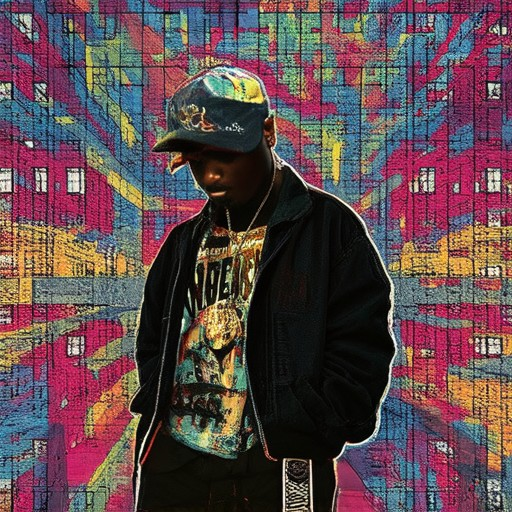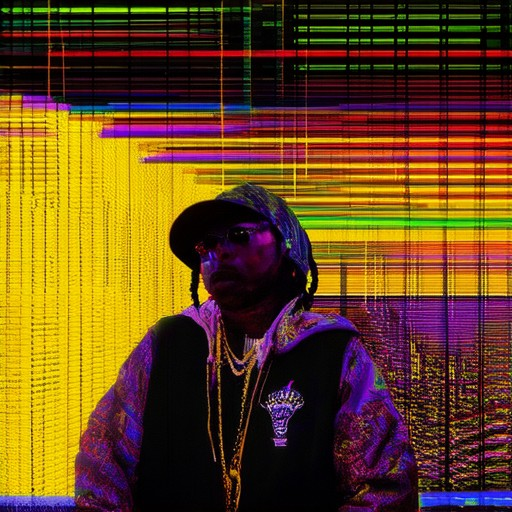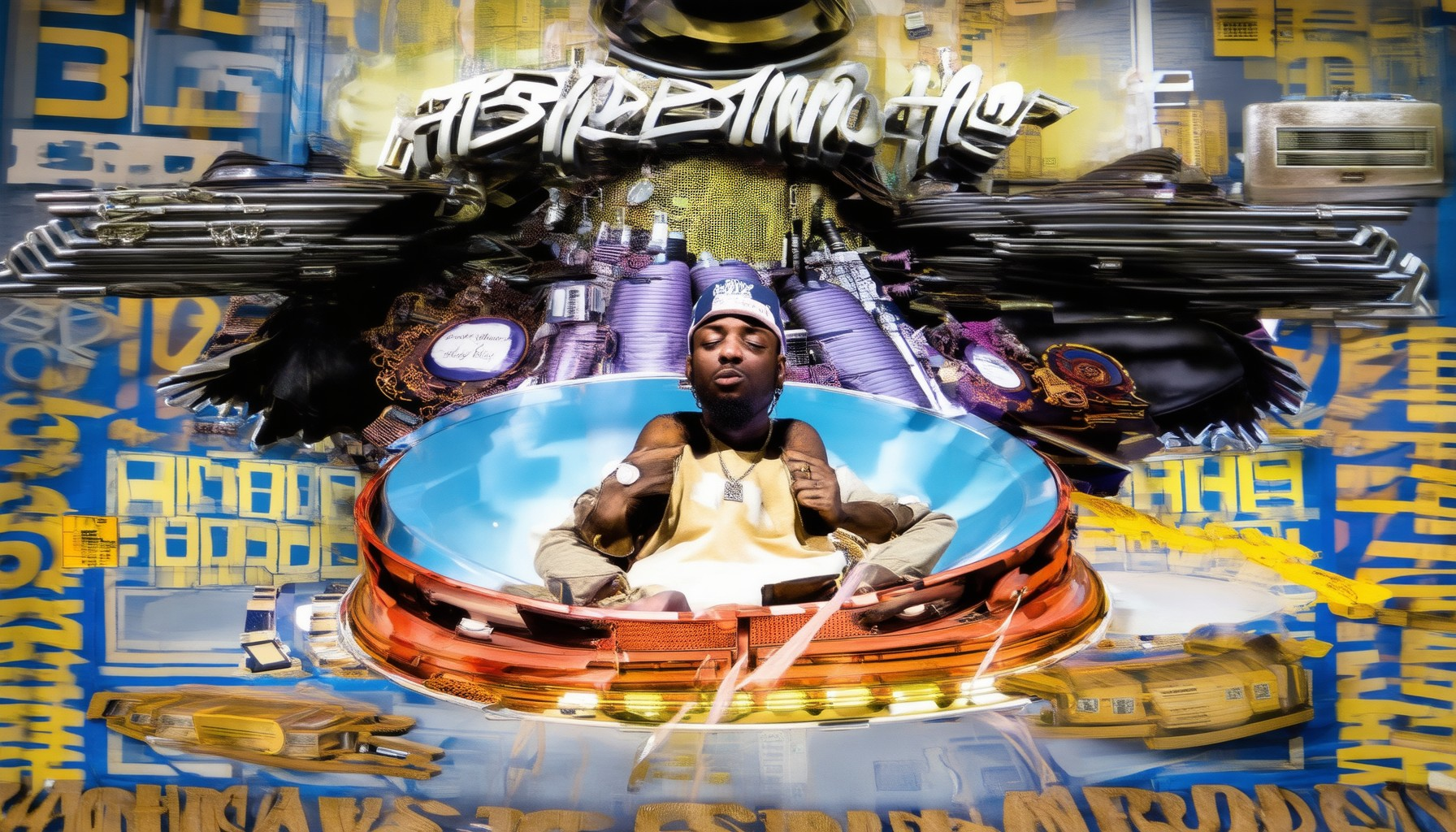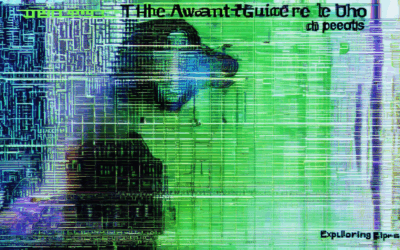Independent hip hop has long been a beacon of authenticity and creativity in the world of music, carving out its own unique path away from the mainstream spotlight. This grassroots movement, rooted in a DIY ethos and a commitment to personal expression, has consistently challenged conventional norms and redefined what it means to be an artist. With its focus on social consciousness, innovative storytelling, and a strong sense of community, independent hip hop offers a powerful reflection of societal struggles and cultural shifts. In this article, we delve into the core elements and success factors that define this vibrant subgenre, exploring the challenges, opportunities, and innovations that have shaped its evolution. From the journey of artists navigating financial hurdles and building loyal fanbases to the broader cultural significance of a genre that embraces diversity and originality, independent hip hop continues to inspire and influence music lovers worldwide.
Key Takeaways
– Creativity Drives Innovation: Independent hip hop artists excel by pushing creative boundaries, experimenting with unique beats, and blending genres like abstract hip hop.
– Strong Networks Build Opportunities: Collaborations with other artists, producers, and industry pros amplify reach and credibility.
– Effective Marketing Strategies: Leveraging social media, streaming platforms, and online communities is essential for visibility in today’s digital age.
– Consistency and Dedication: A steady release schedule and quality content foster loyalty and establish credibility.
– Social Media Engagement: Platforms like Instagram, Twitter, and TikTok help artists connect with fans and build a robust online presence.
– Audience Interaction: Engaging fans through live performances and interactive content deepens connections and builds a loyal fanbase.
– Financial Prudence: Smart management of revenue streams from shows, merchandise, and partnerships is crucial for long-term success.
– Unwavering Determination: Resilience is key to navigating the competitive music industry and achieving lasting success.
– Cultural Significance: Independent hip hop reflects societal issues and promotes dialogue, serving as a cultural mirror.
– Regional Diversity: The scene thrives across cities like New York, Los Angeles, and Paris, offering diverse flavors and contributions.
– Social Impact: Artists use their platforms to address social issues, driving awareness and change through powerful lyrics.

What Are the Key Elements That Define Independent Hip Hop?
Independent hip hop is a vibrant and dynamic subculture that stands apart from mainstream music. It thrives on authenticity, creativity, and a deep connection to its roots. Here are the key elements that make independent hip hop uniquely compelling:
- Authenticity : Independent hip hop often feels personal and genuine. Artists frequently share introspective narratives, drawing from their own experiences and struggles. This authenticity resonates deeply with listeners and helps foster a sense of community among fans.
- Lyrical Depth : The lyrics in independent hip hop tend to be more introspective and socially conscious. Artists often tackle complex topics like inequality, mental health, and societal issues, delivering thought-provoking messages through their words.
- Cultural Impact : Independent hip hop serves as a platform for marginalized voices. It often highlights underrepresented stories and perspectives, contributing to a richer cultural dialogue within the hip hop community.
- Musical Diversity : Unlike mainstream hip hop, which sometimes relies on formulaic structures, independent hip hop embraces a wider range of musical styles. This includes experimental beats, lo-fi textures, and influences from genres like jazz, funk, and electronic music.
- Social Consciousness : Many independent hip hop artists use their music to address pressing social issues. This commitment to activism and awareness adds a layer of purpose to their work, making it impactful beyond just entertainment.
- Live Performances : Independent hip hop artists often emphasize live performances. They experiment with soundscapes and improvisation, creating a more immersive experience for audiences. This focus on live dynamics sets them apart from studio-only productions.
- DIY Ethos : Independent hip hop artists commonly operate outside traditional record labels. They often produce their music independently, relying on grassroots support from fans and communities. This DIY approach fosters a sense of independence and innovation.
- Collaborations : While some independent artists choose to collaborate with established names, many prefer to work with fellow independents. These partnerships often result in more organic and less commercially influenced music.
- Evolution : Independent hip hop is constantly evolving. New artists bring fresh perspectives and techniques, pushing the boundaries of what the genre can be. This continuous growth ensures that independent hip hop remains a vital and forward-thinking force in music.
These elements collectively define the essence of independent hip hop, making it a powerful expression of artistry and cultural resistance. From authentic storytelling to musical experimentation, independent hip hop continues to inspire and challenge listeners worldwide.
What Makes Independent Hip Hop Distinct From Mainstream Hip Hop?
Independent hip hop stands apart from mainstream hip hop due to its authenticity, creativity, and connection with its audience. Here’s a breakdown of what sets it apart:
1. Authenticity and Originality
Independent artists often craft raw, unfiltered sounds that reflect their true selves and experiences. Unlike mainstream hip hop, which sometimes prioritizes commercial appeal over artistic integrity, independent music tends to embrace imperfections and unique styles. Artists frequently experiment with diverse sounds, including avant-garde production, spoken word, and electronic influences, creating something truly original.
2. Creative Control
One of the most significant differences is the level of creative control independent artists have. Without the constraints of record labels, they can fully realize their artistic visions. This freedom allows for more experimental and boundary-pushing work, fostering a culture of innovation and individuality.
3. Connection With Fans
Independent hip hop artists often develop a stronger bond with their audiences. Touring independently, engaging with fans through social media, and releasing music on platforms like Bandcamp or SoundCloud foster a loyal community. This direct connection helps build trust and creates a more intimate experience for listeners.
4. Musical Diversity
Independent hip hop showcases a wider range of musical styles. While mainstream hip hop may lean heavily on conventional beats and themes, independent artists draw inspiration from various genres like jazz, funk, and electronic music. This diversity keeps the art form fresh and evolving.
5. Distribution Methods
Independent artists rely on grassroots marketing and DIY approaches to distribute their music. Platforms like streaming services, social media, and local performances are key tools for reaching audiences. This self-reliance requires creativity and resilience but also allows artists to retain full ownership of their work.
6. Community and Culture
Independent hip hop is deeply rooted in a vibrant subculture. Artists often collaborate with like-minded creatives, whether it’s for music production, visuals, or live performances. This collective spirit strengthens the scene and fosters a sense of belonging among fans and artists alike.
7. Financial Independence
Achieving financial independence is a challenge for many independent artists, but it’s a testament to their dedication. By controlling their own destiny, they can explore projects that resonate personally and culturally, regardless of commercial success.
8. Experimental Sounds
Independent hip hop is a breeding ground for experimental sounds. Artists push boundaries, incorporating elements like lo-fi beats, trap, and hyperpop to create something entirely new. This willingness to take risks keeps the genre dynamic and prevents it from becoming stale.
9. Grassroots Movements
Independent hip hop often serves as a catalyst for social change. Many artists use their music to address issues like systemic inequality, mental health, and societal challenges. This commitment to activism adds depth and relevance to the art form.
10. Fan Engagement
Fans play a pivotal role in the independent hip hop ecosystem. From attending intimate gigs to supporting artists on Patreon, fans contribute to the success of their favorite creators. This collaborative relationship strengthens the artist-fan bond and ensures the music’s reach.
By embracing these qualities, independent hip hop continues to thrive as a vital force in the music landscape, offering a fresh perspective and a unique listening experience.

The Journey of an Independent Hip-Hop Artist
Embarking on the path of an independent hip-hop artist is a challenging yet rewarding endeavor. Here’s a breakdown of the key stages and considerations that define this unique journey:
- Discovering Your Passion
- Identify your unique style and themes that resonate with you personally.
- Research the hip-hop landscape to find inspiration from established artists and emerging voices.
- Develop a clear vision for your music, whether it’s storytelling, social commentary, or artistic expression.
- Developing Your Skills
- Hone your lyrical craftsmanship, focusing on rhyme schemes, wordplay, and narrative techniques.
- Master production techniques, from beatmaking to sampling and sound design.
- Pursue formal training or workshops to enhance your musical expertise.
- Building Your Network
- Connect with fellow artists, producers, and industry professionals who share your vision.
- Join online communities and local collectives to collaborate and support each other.
- Seek mentorship from experienced artists who can offer guidance and feedback.
- Releasing Your Music
- Start with self-releases to build your audience and credibility.
- Distribute your music through digital platforms like streaming services and online marketplaces.
- Consider physical releases, vinyl records, and limited editions for added impact.
- Engaging Your Audience
- Build a loyal fanbase by interacting with your audience through social media and live performances.
- Foster a community around your music by hosting events, workshops, and meet-and-greets.
- Use platforms like Instagram, Twitter, and TikTok to share your journey and connect with listeners.
- Refining Your Style
- Experiment with different genres and styles to evolve your sound.
- Stay updated on trends and innovations in the music industry to keep your work fresh.
- Reflect on feedback from fans and critics to identify areas for growth.
- Seeking Opportunities
- Apply for grants, competitions, and residency programs that support independent artists.
- Collaborate with visual artists, filmmakers, and other creatives to enhance your project’s appeal.
- Explore licensing opportunities for your music in films, commercials, and gaming projects.
- Collaborating with Others
- Partner with like-minded artists to create collaborative projects and expand your reach.
- Work with producers and engineers who share your creative vision.
- Guest feature on tracks or invite others to feature on your music.
- Staying Persistent and Adaptable
- Understand that success takes time and requires consistent effort.
- Adapt to changes in the industry and audience preferences to stay relevant.
- Keep track of your progress and celebrate milestones along the way.
- Moving Toward Commercial Success
- Expand your distribution channels to include traditional outlets like record labels and retail stores.
- Strive for regional and national recognition through performances and press coverage.
- Explore career paths beyond music, such as acting, podcasting, or brand partnerships.
By navigating these stages thoughtfully and staying true to your artistic vision, you can carve out a successful and meaningful career as an independent hip-hop artist.

What Factors Contribute To The Success Of Independent Hip Hop Artists?
The success of independent hip hop artists is influenced by a combination of creativity, strategic planning, and a strong connection with their audience. Here are the key factors that play a crucial role:
- Creativity and Artistic Vision : Independent artists often stand out by pushing creative boundaries. Whether it’s experimenting with unique beats, storytelling, or blending genres like abstract hip hop, innovation is key to capturing attention.
- Strong Networks and Collaborations : Building relationships with other artists, producers, and industry professionals can open doors to opportunities. Collaboration with like-minded individuals can amplify reach and credibility.
- Effective Marketing Strategies : In today’s digital age, self-promotion is essential. Utilizing social media, streaming platforms, and online communities to engage fans and promote music is vital for visibility.
- Consistency and Dedication : Success doesn’t happen overnight. Maintaining a consistent release schedule, quality, and presence in the music scene fosters loyalty among fans and establishes credibility.
- Social Media Engagement : Leveraging platforms like Instagram, Twitter, and TikTok to connect with audiences, share music, and build a community can significantly boost an artist’s profile.
- Audience Interaction : Engaging with fans through live performances, Q&A sessions, and interactive content creates a deeper connection and fosters a loyal fanbase.
- Financial Prudence : Managing finances wisely, including revenue streams from shows, merchandise, and partnerships, is crucial for sustaining long-term success.
- Unwavering Determination : The journey to becoming a successful independent artist requires resilience and perseverance, especially in navigating the competitive music industry landscape.
Abstract Hip Hop supports independent artists by providing a platform to explore and celebrate the genre’s unique sounds and cultural significance. We encourage artists to leverage these factors to carve their own path in the music world.
For more insights into the abstract hip hop scene, explore our hip hop genres and discover resources to help artists grow. Connect with us on social media and stay updated on the latest trends in independent music.
Cultural Significance of Independent Hip Hop
Independent hip-hop has emerged as a powerful force in the music industry, carrying deeper meanings and stories beyond mainstream narratives. This subgenre thrives on authenticity, artistic freedom, and a strong sense of community, making it a cornerstone of modern music culture.
One of the most profound aspects of independent hip-hop is its role as a cultural mirror. Artists often use their music to reflect societal issues, challenges, and struggles, creating a space for dialogue and awareness. Tracks like those featured on Abstract Hip Hop regularly tackle topics ranging from systemic inequality to personal resilience, resonating with listeners on a universal level.
The genre’s DIY ethos has redefined creativity in music. Independent artists bypass traditional gatekeepers, allowing their unique voices to shine. Platforms like SoundCloud and streaming services have democratized access, enabling artists to share their stories without compromise. This independence fosters a vibrant ecosystem where experimentation flourishes, pushing boundaries in sound and subject matter.
Community building is another hallmark of independent hip-hop. Scenes in cities like New York, Los Angeles, and Chicago thrive on collaboration and mutual support. Festivals, mixtapes, and collaborative projects highlight the genre’s collective spirit. Events like High Line Festival showcase the power of community-driven artistry, bringing people together through shared musical experiences.
Moreover, independent hip-hop has influenced global culture. Its blend of storytelling, beats, and cultural references has inspired artists worldwide, bridging gaps between genres and generations. The genre’s reach extends beyond music, impacting fashion, film, and social movements. Its influence is undeniable, shaping contemporary culture in ways that continue to evolve.
As the genre evolves, so does its impact. Independent hip-hop remains a beacon of creativity, diversity, and resistance, embodying the essence of cultural expression in the modern era. Platforms like YouTube and Spotify have amplified its reach, ensuring that its stories and sounds resonate globally.

What Insights Provide a Deeper Understanding of the Independent Hip Hop Scene?
The independent hip hop scene is a vibrant and dynamic ecosystem defined by its authenticity, creativity, and resilience. Here are key insights that offer a deeper understanding of this cultural phenomenon:
- Cultural Significance: Independent hip hop often operates outside mainstream structures, allowing artists to preserve their authenticity and tell untold stories. This scene thrives on a strong sense of community and identity, reflecting the diverse voices and experiences within urban cultures.
- Creative Freedom: Artists in the independent scene have greater freedom to experiment with sounds, styles, and themes. This creative liberty often leads to innovative blends of genres like abstract hip hop, jazz, funk, and electronic music, pushing boundaries beyond conventional expectations.
- Community and DIY Ethos: The independent hip hop movement is built on a strong DIY spirit. Artists and collectives often collaborate, organize events, and distribute music independently, fostering a sense of unity and shared purpose among fans and creators alike.
- Regional Diversity: The independent hip hop scene is not confined to a single geographic area. Cities like New York, Los Angeles, Chicago, and Paris each have their own distinct flavors, contributing to a rich and varied cultural landscape.
- Social Impact: Many independent hip hop artists use their platforms to address social issues, promoting awareness and driving change through powerful lyrics and storytelling. This commitment to social justice adds depth and relevance to the music.
- Challenges and Adaptations: While the independent scene offers creative freedom, it also faces unique challenges such as limited resources, distribution channels, and visibility compared to mainstream hip hop. However, this has not stopped artists from innovating and finding new ways to connect with audiences.
The independent hip hop scene is more than just music—it’s a movement, a reflection of cultural identity, and a celebration of artistic freedom. By embracing this perspective, we gain a richer understanding of its role in shaping modern music and society.





0 Comments